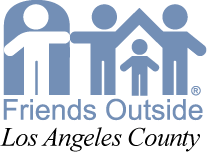Dear Friends of Friends Outside:
As the year comes to a close, I suspect that many are looking forward to kicking it figuratively to the curb and toasting its conclusion on New Year’s Eve. It has been a trying year at the least. One of my personal guidelines is “If I am going to go through H – e – double hockey sticks, I am going to learn from it.” Here is a partial list of my lessons learned. I share them with the hope that we as members of humanity remember to take a few moments to do what we can to make 2021 a little better for us all.
- Take nothing for granted. Many people lost loved ones very unexpectedly and under the most hideous of circumstances. And, who would have imagined 20 years ago that in one short year people would visit New York City and not see the World Trade Center in the skyline. Ultimately, everything, even brick and mortar, is transitory and can disappear much more quickly than we might have ever imagined.
- Take care of my health. When horrible diseases come around, people with better health have better chances of surviving.
- Take care of our democracy. 200+ years old, it is easy to take for granted but also fragile as a rose. Vote. Hold public officials accountable. Fight to defend my beliefs.
- Take care of our planet. Do something every day to restore Planet Earth. As I saw on a t-shirt, “There is no Planet B.”
And, finally, remember to thank the persons who have helped you. So, a big “Thank you” to the persons who have supported our Mission in 2020. The need became greater and so many people rose to the occasion by donating their money and time to help ensure that we could continue to do our important work.
As the year ends, I wish each of you an enjoyable and healthy Holiday and hope that our actions in 2021 are informed by what we have learned in 2020.
Mary Weaver
Executive Director

